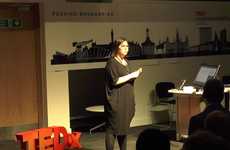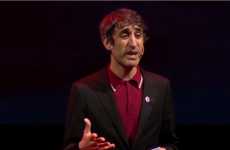
Need Inspiration?
Get inspired by 4,000+ keynote speaker videos & our founder, a top keynote speaker on innovation.
In His Talk on Behavior, Robert Sapolsky Examines Human History
Riley von Niessen — June 1, 2017 — Keynote Trends
References: youtube
Robert Sapolsky, a neuroscientist, examines some of humanity's most shameful acts of violence throughout time in his talk on behavior.
By considering different examples of this, Sapolsky reveals how context vastly affects perceptions of right and wrong, and drives people to take part in acts that are incredibly brutal. Although people have shown to be capable of horrific acts of violence, they're also capable of extreme acts of compassion, and just about everything in between. Throughout his talk on behavior, Sapolsky goes over the role of an underdeveloped frontal cortex, as well as how elevated levels of testosterone, stress hormones, and more can cause one's sense of context to be warped.
With this, Sapolsky speaks to the power of neuroplasticity, which means that one's brain can change in response to experience -- something that's especially influential during childhood and early adulthood. By highlighting how gene environments connect to violence, as well as the impact of historical values that have been embedded into different species, he fuels the nature versus nurture debate, and shows that it goes much deeper than some might have thought.
By considering different examples of this, Sapolsky reveals how context vastly affects perceptions of right and wrong, and drives people to take part in acts that are incredibly brutal. Although people have shown to be capable of horrific acts of violence, they're also capable of extreme acts of compassion, and just about everything in between. Throughout his talk on behavior, Sapolsky goes over the role of an underdeveloped frontal cortex, as well as how elevated levels of testosterone, stress hormones, and more can cause one's sense of context to be warped.
With this, Sapolsky speaks to the power of neuroplasticity, which means that one's brain can change in response to experience -- something that's especially influential during childhood and early adulthood. By highlighting how gene environments connect to violence, as well as the impact of historical values that have been embedded into different species, he fuels the nature versus nurture debate, and shows that it goes much deeper than some might have thought.
6.3
Score
Popularity
Activity
Freshness

















